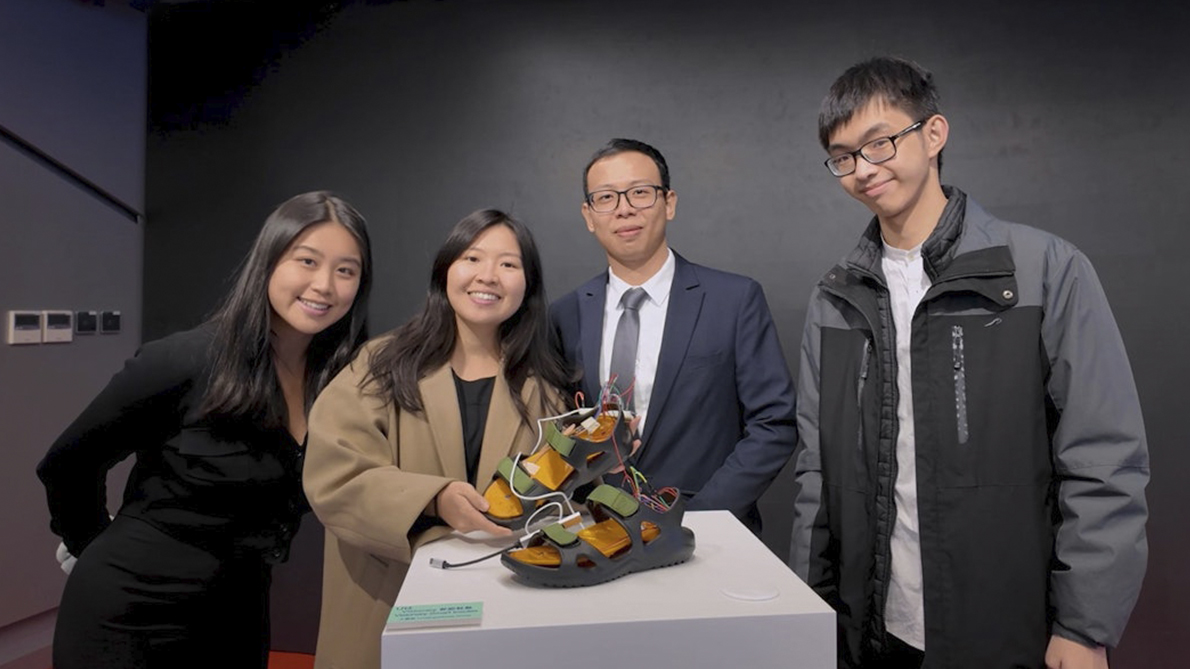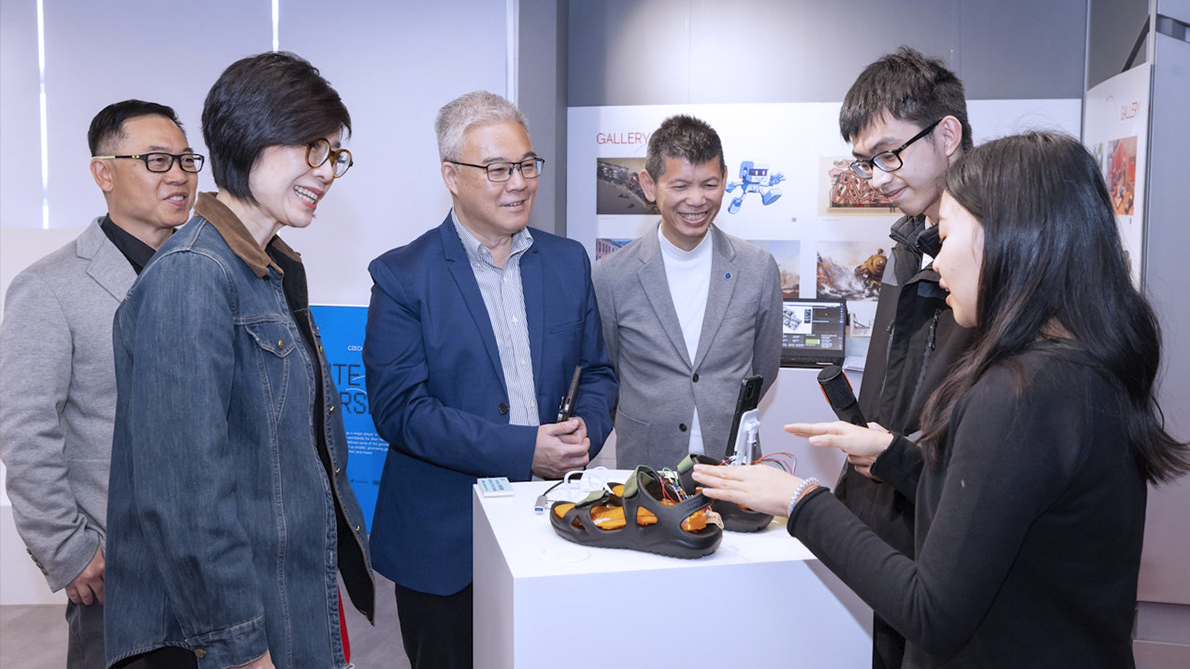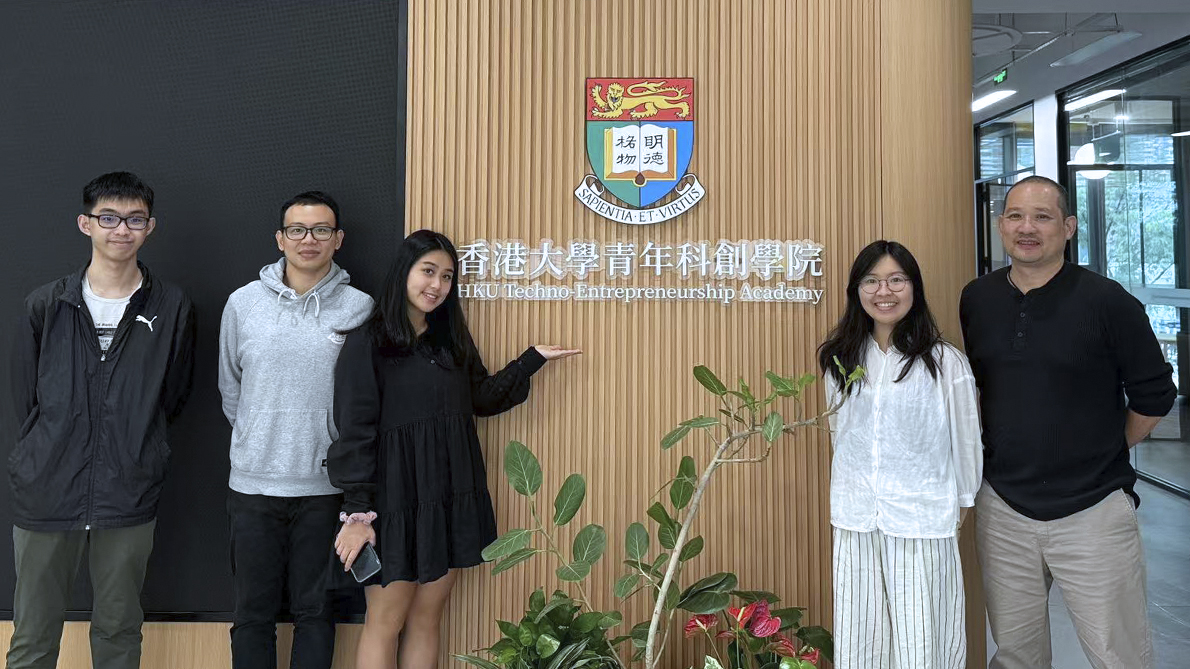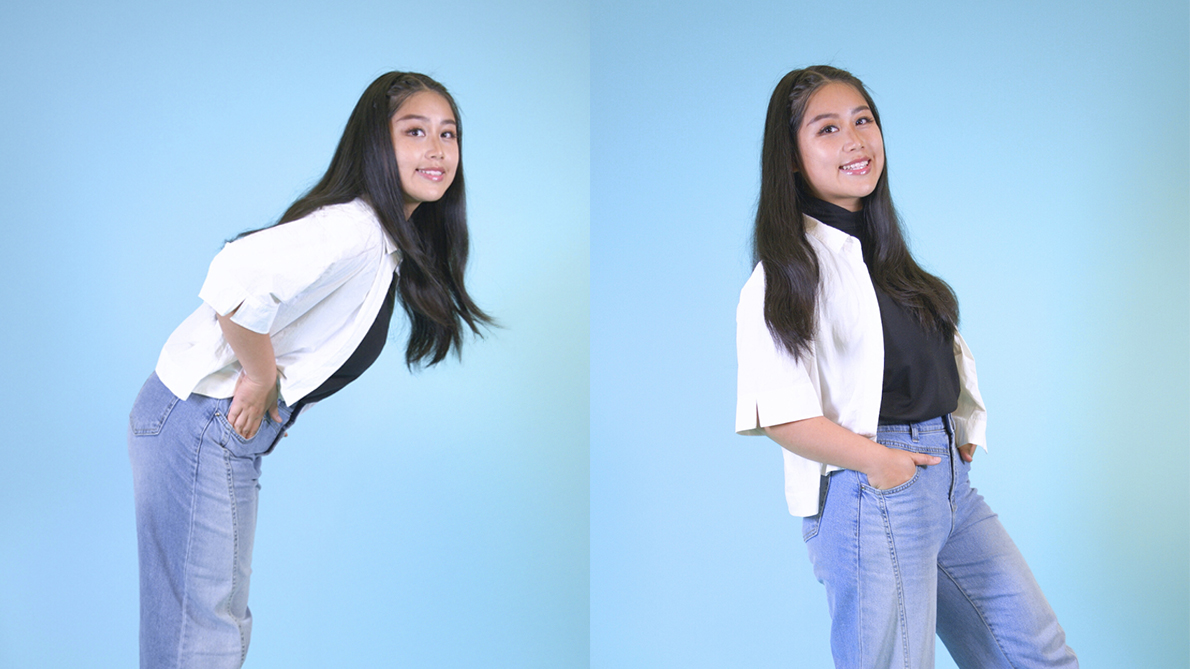Giving a leg up on mobility issues through technology
Raissa Yeung (iWalk, Visionary)
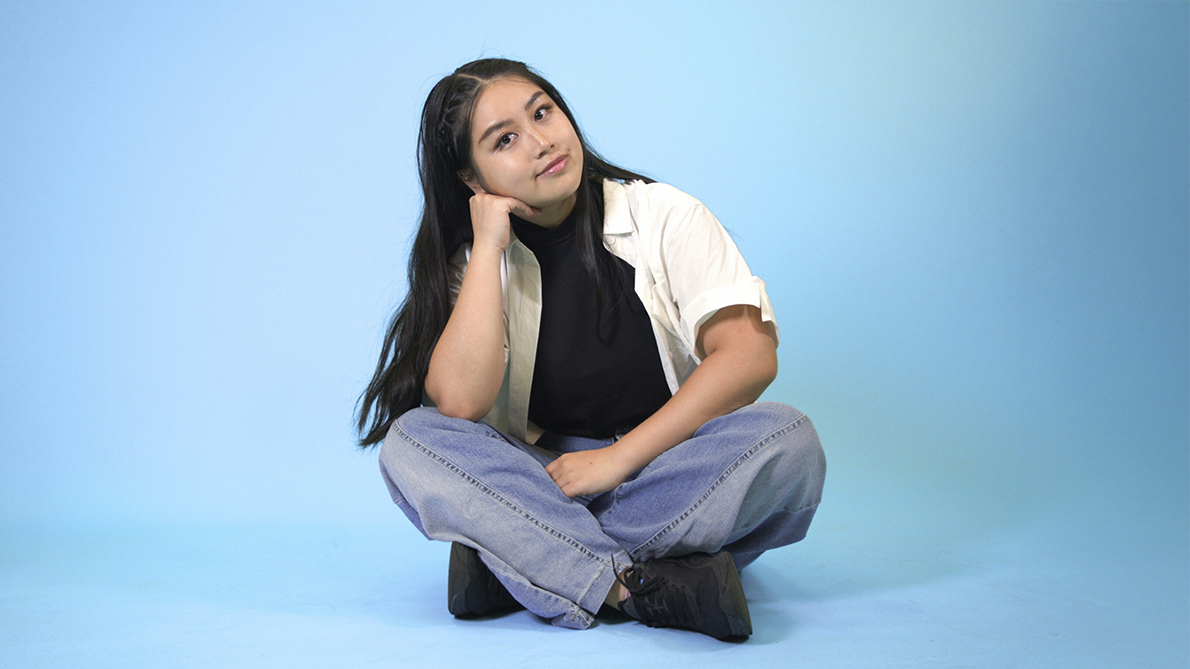
While Hong Kong may be consistently ranked as being among the world’s most walkable cities, many residents – especially elderly people and people with disabilities – face real challenges when navigating a crowded urban environment. Raissa Yeung is an HKU social sciences alumna who is trying to change this with technology.
As a student, she had taken part in corporate public relations internships, which she found repetitive and uninspiring. Then the pandemic hit, and everything changed. “Technology took up a much greater part of my life, as it did for almost everyone,” she recalls. “This motivated me to enrol in computer science as a minor, with the intention of creating impactful projects for the community.” The result was the creation of iWalk and Visionary – interdisciplinary projects that combine her knowledge of social sciences, computer science, and entrepreneurship to create impactful solutions.
The projects also suggest a curious obsession with walking. “Yes, they are all focused on enhancing mobility and foot health!” she laughs. “The inspiration for these initiatives comes from our shared observation of Hong Kong’s unique urban environment, where walkability is a defining feature of daily life.” She notes that 82% of Hong Kong residents rate the city highly for ease of walking and an average person takes around 7,000 steps per day. This high level of pedestrian activity underscores the importance of walking to the quality of life in Hong Kong and similar dense urban centres across Asia.
The impetus for creating iWalk came from seeing the struggle one of Raissa’s friends had with knock knees and mobility. iWalk are 3D-printed, smart insoles with pressure sensors for detecting and correcting gait issues like flat feet, knock knees, and bow-leggedness, while also providing real-time feedback and gamified exercises for the users. “Since I’m a certified personal trainer, I’m also responsible for the gamification of exercise modules, ensuring our solutions are both engaging and effective,” she says. She hopes the insoles will be of particular benefit to children struggling with the physical and emotional strain of their mobility challenges, as well as the parents who are trying to help them. “We’re currently doing clinical trials with Queen Mary’s Hospital, and ultimately we hope to provide an affordable alternative to expensive podiatric services.”
Visionary are also smart insoles designed to help with the navigation issues faced by visually- and hearing-impaired individuals. The most important point is that they provide haptic signals – as opposed to the audio feedback often found in other products on the market – through small vibrators installed in the insoles. “This will help visually impaired people who can’t always rely on hearing when they’re outdoors,” she explains. “For many visually impaired people, if their hearing is disrupted when they’re in a noisy environment, it directly impacts their safety, because they rely on their hearing to detect danger and a whole range of other signals.”
Raissa notes that the support from HKU has been crucial for enabling them to realise these projects. “It was very easy to reach out to the medical school here, especially the orthopaedics department. They were extremely willing to mentor us throughout our development because they think that a lot of people need this technology,” she says. “According to them, Hong Kong people have a lot of problems walking!”
Additionally, because these projects also involved collaborations with students and members from other institutions, Raissa could see that the comparative support from HKU was truly exceptional. “HKU definitely provides the most support to its startup teams,” she says firmly. “And that’s why even our mentors and advisors are from HKU. It’s because of our strong network.”
Her praise for the support she received, in particular, from iDendron, is unequivocal and effusive. To her, it was not just a collaborative workspace that also connected teams and provided mentorship from experienced experts on judging panels of competitions, as important as those things were. She remembers a particularly despondent moment when she was struggling to juggle academic commitments with entrepreneurial demands. “I was completely drained from my exams when I walked into iDendron, and the staff could see it. But they all came over and consoled and commiserated with me, before suddenly telling me all about new funding opportunities and partnerships, and an angel network of investors that I could approach,” she recalls. “I was so moved. They really believed in me, and at that moment, they felt like family, and HKU really felt like home.”
She credits HKU’s flexible curriculum and interdisciplinary approach with allowing her to explore computer science and entrepreneurship alongside her social sciences degree, while also taking a gap year to focus on her startups.
The driving force in all of Raissa’s projects has been to use technology in a non-intrusive way to address small but significant issues that are often ignored in people’s daily lives, but which also can have a notable impact on them, such as foot health and accessibility for people with visual disabilities. “I think many problems in this world that people are ignoring are labelled as not being ‘big enough’ to deserve attention,” she says. “Something as niche as flat feet for kids can still be a struggle if you’re the one living with it. And because technology is so enabling and so accessible today, we want to be able to use it to give these problems the attention they deserve.”

